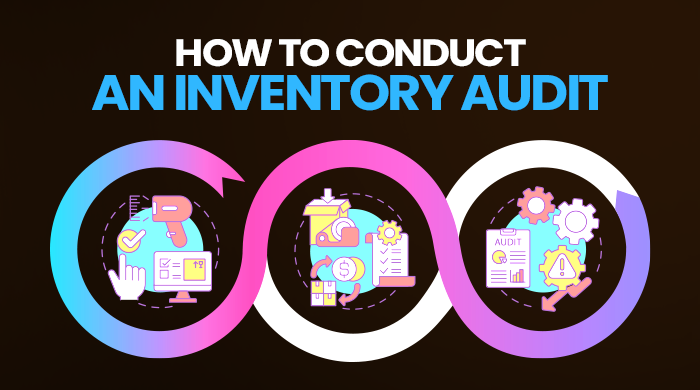How to Conduct an Inventory Audit

If you’re new in this field, it’s some how difficult to conduct an inventory audit without help of an expert. Using new technologies to upto date your inventories and keeping it easily is the best practices in nowadays. An inventory audit is the process of comparing a company’s actual inventory levels to its financial records. Inventory audit can be performed by the company or an outside auditor to find any problem with the inventory storage.
A management audit is a thorough investigation of a company or one of its components. The management audit is used to detect flaws or significant weaknesses in an organization or corporation, giving management a tool to address and rectify errors. Emblaze, We are one of the prominent Inventory Audit Providers in Kochi, Kerala, Chennai. We handle your fixed assets as usual, and you merely provide the inputs, which are immediately represented in the records. We make it possible for you to better manage and control your inventory and dedicated to providing results while allowing you to focus on more important elements of your business.
An inventory audit typically consist of the following procedures:
Evaluating Inventory Count: The auditors will discuss the counting procedure with you, watch the “live” counts as they happen, count some of the inventory themselves, compare their counts with the amounts recorded, and ensure that all inventory count tags were accounted for in order to become familiar with the procedures you use to count the inventory. They might examine sites with high inventory levels if you have many inventory locations.
Reviewing Item Costs: The inspectors will determine the origin of the purchased costs in your accounting records by comparing the amounts in recent supplier invoices to the costs mentioned in your inventory valuation reports.
Analysis of Costs: The auditors will check to see if you regularly use the same general ledger accounts as the source for your overhead expenses, whether the overhead contains any abnormal charges, and whether you consistently record the overhead costs if you apply overhead costs to inventory valuation.
Audit High Value Item: The auditors will count the items in your inventory to ensure that their value is accurate and will look over valuation reports that are relevant to these products if the worth of certain of the things in your inventory is unusually high.
Review of Goods Cost: The inspectors will check a sample of finished goods’ bills of materials to verify if they accurately compile and reflect the costs of the components in the finished goods.
Checking Inventory Transit & Allowances: During the inventory audit, the inspectors might ask to view your transfer documents if part of your merchandise is currently being transferred between sites. Based on your historical trends and reports, the auditors will determine the significance of the sums you have recorded as allowances for outmoded or scrapped inventory.
The above mentioned are some of the procedures of an inventory audit. An efficient inventory management can reduce the frequency, length, and complexity of audits. Emblaze offers the best Audit Services in Kochi, Kerala. Contact us at +91 999 549 2484 or give a quote at mail@emblazetcs.com for further assistance






